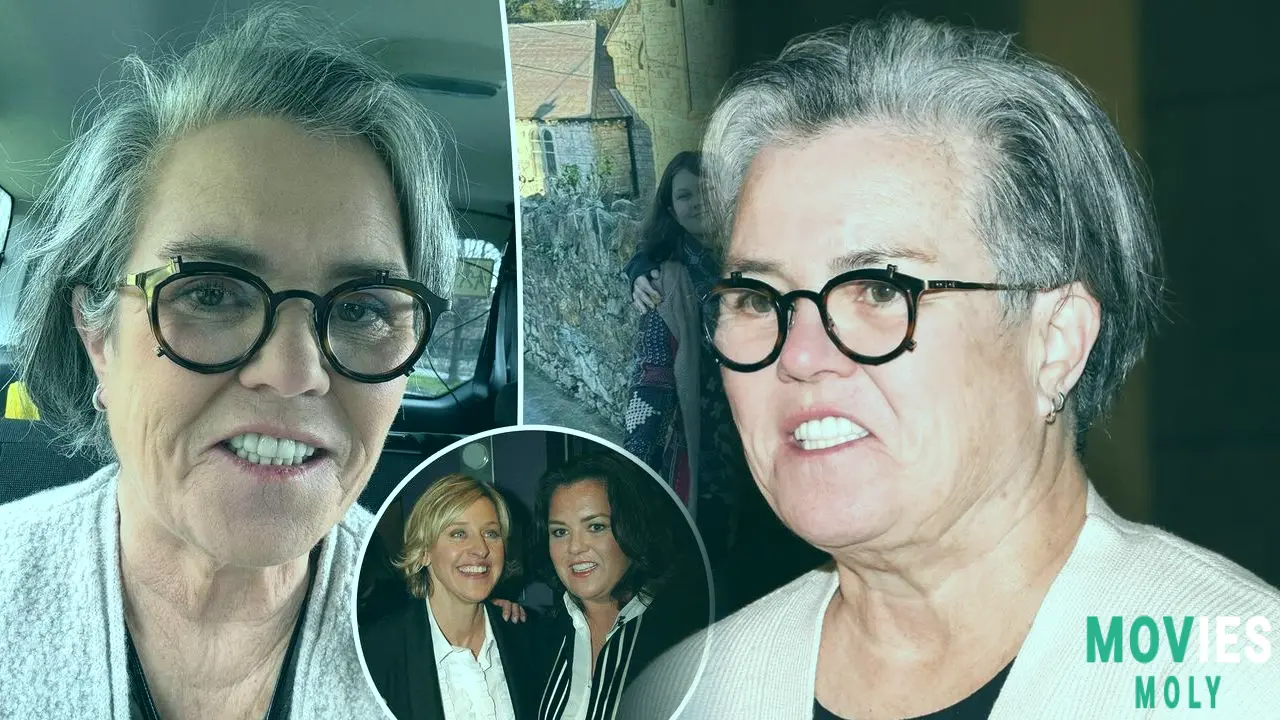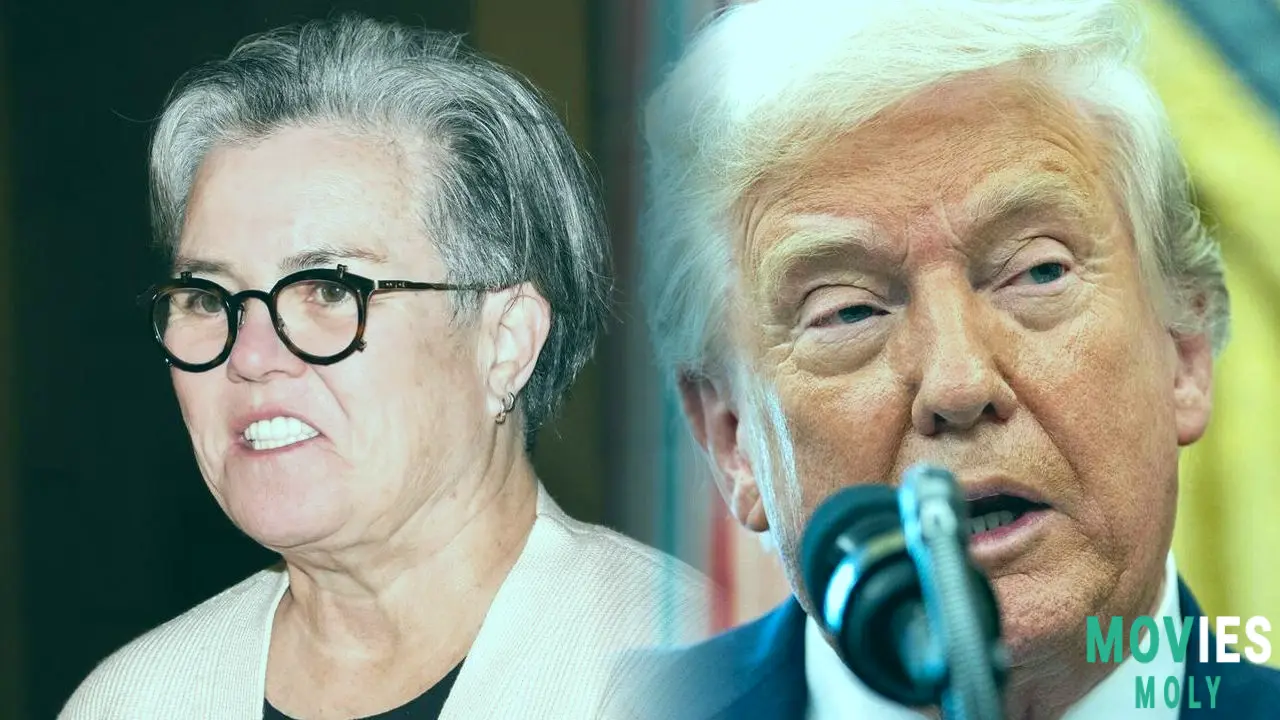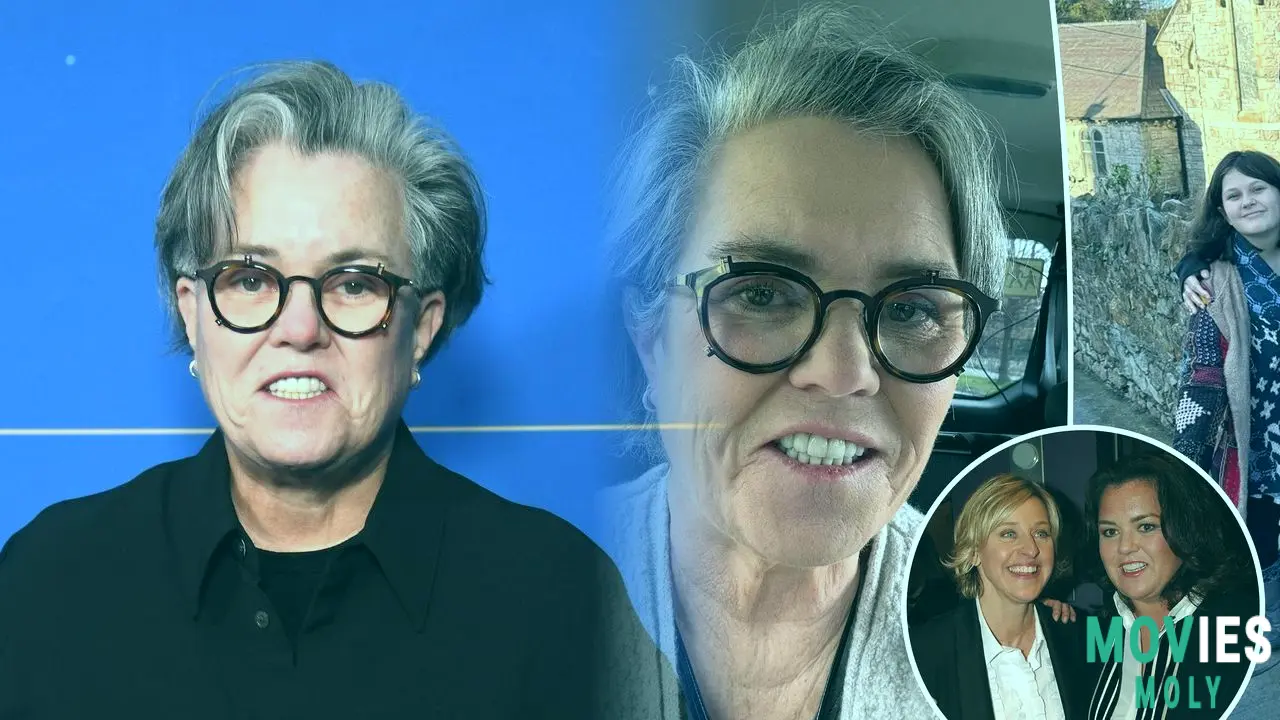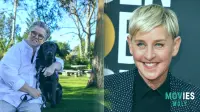Rosie O’donnell may not wear a cape or wield a shield, but her recent life choices echo the gravitas of a Marvel or DC icon stepping into a new origin story. The Emmy-winning comedian, former talk show titan, and cultural lightning rod has traded the glare of American media battlegrounds for the quiet, kind streets of an Irish village — and in doing so, has crafted one of the most powerful real-life narratives of resilience and love in recent memory.
How Ireland Became the Unexpected Sanctuary for Rosie and Her Autistic, Non-Binary ChildIt’s easy to imagine Dublin’s Howth — with its cozy grocer, friendly cashiers, and village charm — as the setting for a heroic downtime. For Rosie O’Donnell and her 12-year-old child, Clay, it’s become just that: a place to heal, thrive, and escape a cultural storm. Originally hoping to settle in Glengarry, O’Donnell recounted how a mold issue forced a last-minute relocation. But what could have been a setback turned into a serendipitous win. “There’s a great, great school there. And Clay has done very well. And they were really welcoming,” she shared.
For a figure like O’Donnell — whose life has been lived openly, politically, and passionately in the U.S. — the move across the Atlantic wasn’t just geographical. It was existential. “People are unbearably kind in a way that shocks me every single day,” she said, painting a picture of a life rebuilt on simple human connection.
Leaving America Behind: A Decision Fueled by Protection, Not Protest

While many public figures have spoken out against the political climate in America, few have taken the step of leaving the country altogether. Rosie did — and she has zero regrets. In a candid interview on CNN, she revealed that she and Clay were already out of the U.S. before President Biden’s inauguration, having made the decision the moment it became real that Trump would win the election.
“Not a day has gone by that I thought it was the wrong decision,” O’Donnell said. Her reasoning? A document called Project 2025. What it foreshadowed, in her eyes, was a threat to the very safety and sanity of her family. For a mother with a non-binary, autistic child, that wasn’t a risk she was willing to take.
This is where O’Donnell’s story intersects with the most potent type of heroism: protection. Like a guardian shielding their ward from an encroaching dark force, Rosie stepped into the unknown — away from her career, friends, and comfort — to create a safe haven for Clay. It’s a move that resonates deeply, especially in a world where parental courage often goes unstaged and uncelebrated.
Clay O’Donnell: A Silent Protagonist Thriving Off-Screen in Dublin

Clay, who uses they/them pronouns, is rarely the focus of media attention, and Rosie makes sure it stays that way. But the love and pride she radiates when speaking about her child is unmistakable. Diagnosed with autism at age two, Clay’s smooth adjustment to life in Ireland has been “never, ever expected” — in the best way possible.
“I’m going to do the best that I can to set up a home here in Dublin for me and my little autistic, amazing, nonbinary child,” Rosie said in a heartfelt TikTok video. It's the kind of unscripted, emotional moment that cuts through the noise and lands with the weight of a Thanos snap — only with hope instead of destruction.
And yet, even as Clay flourishes, O’Donnell remains vigilant. Her sharp rebuke of Robert F. Kennedy Jr.’s dehumanizing comments about autistic individuals wasn't just a political statement — it was personal. When Kennedy absurdly claimed that autistic kids “will never” do a laundry list of ordinary human things, Rosie called him what he is: “disgraceful” and “wholly unqualified.”
Rosie vs. The Patriarchy: Continuing the Fight Without the Fame
Rosie O’Donnell’s battle with Donald Trump is the stuff of early-2000s-View-era legend. From calling him out on live TV to enduring his insults on X (formerly Twitter), she’s never been the type to back down. Her departure from the U.S. didn’t silence her — if anything, it gave her a freer platform from which to speak.
She’s no longer fighting for attention in America’s echo chambers. Instead, she’s targeting the roots of what she calls “fascism” and “gendered hate” from across the pond. When Marjorie Taylor Greene’s camp questioned Ireland’s decision to let Rosie in, it was a stark reminder: even abroad, her presence challenges the status quo.
Not About Conflict, But Connection: What Rosie Wishes Ellen DeGeneres and America Knew
O’Donnell’s relationship with Ellen DeGeneres may be distant — and, by her own admission, awkward — but there’s no bitterness. When asked about Ellen’s quiet exit from Hollywood and move to the Cotswolds, Rosie said she was “shocked” but wished her well. “I don’t want to fight against another gay woman,” she said. “We’re just very different people.”
It’s a humbling moment from someone often cast as combative. But perhaps that’s the point. Rosie’s not interested in battling for the sake of it. She’s fighting for her life. For her child. For truth. And when that fight is over, she’s more than willing to wish peace on those walking different paths.
Rosie O’Donnell’s New Origin Story Is One of Quiet Strength and Unwavering Love
In an era obsessed with loudness, controversy, and virality, Rosie O’Donnell’s move to Ireland stands out like a well-crafted Easter egg in a blockbuster franchise. It’s a deliberate choice, loaded with meaning, and filled with hope. Like a superhero stepping out of the spotlight to regroup and return stronger, Rosie’s story is now about motherhood, safety, kindness, and a small village that knows your name.
She may no longer be battling Trump on American soil, but that doesn’t mean her mission is over. It’s simply evolved. And for those watching closely, Rosie O’Donnell’s Irish chapter might just be her most heroic yet.






